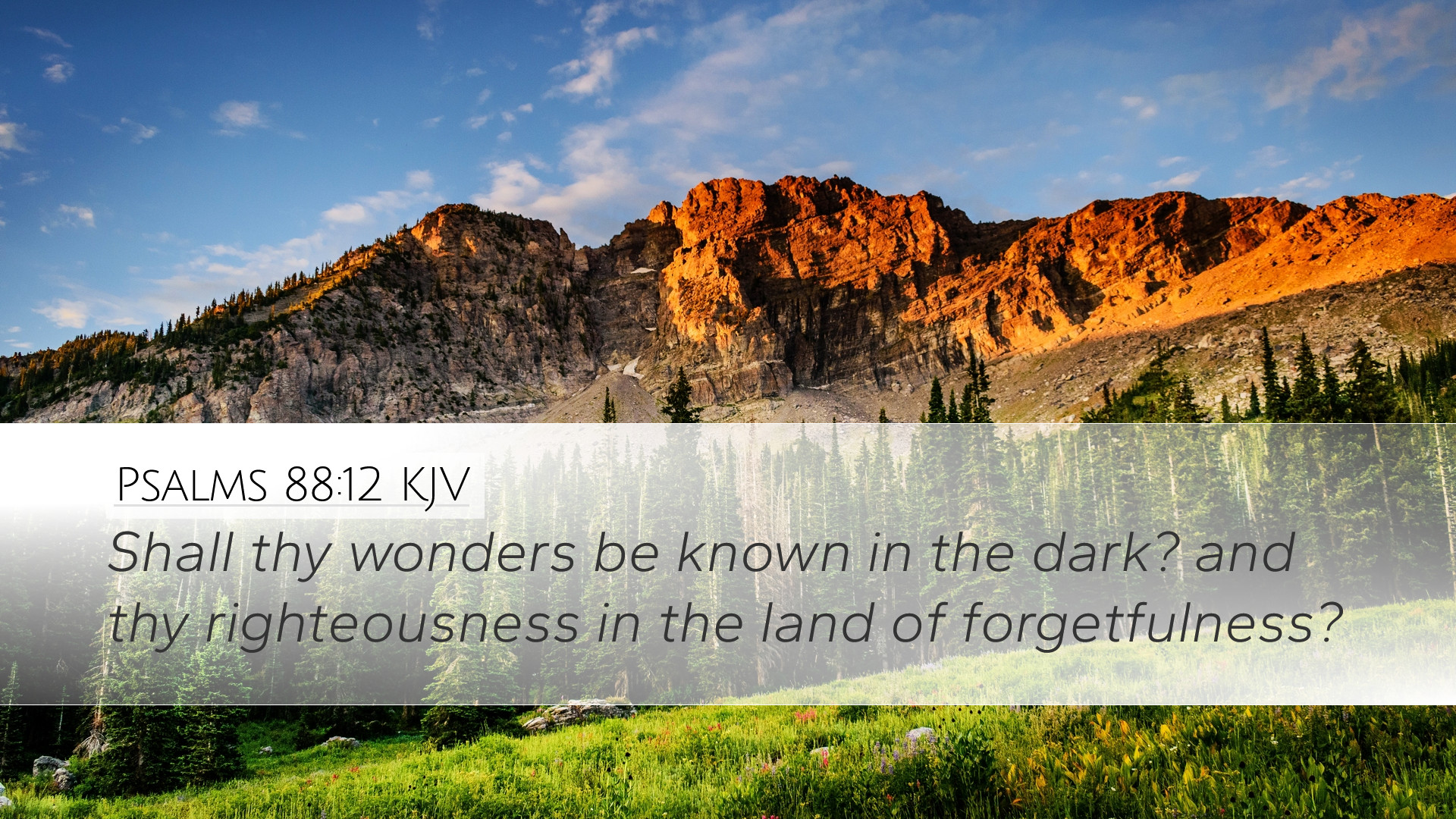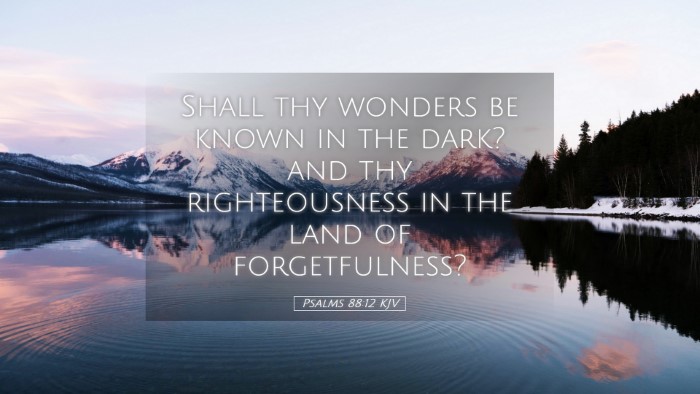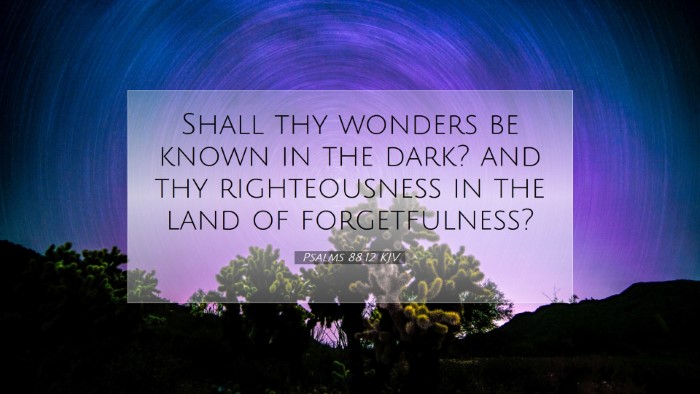Commentary on Psalms 88:12
Bible Verse: "Shall thy wonders be known in the dark? And thy righteousness in the land of forgetfulness?" (Psalms 88:12)
Introduction
This verse from the Psalms presents a poignant question about the nature of God's wonders and righteousness in the context of human suffering and existential despair. Gathering insights from various public domain commentaries, we can explore the depth of this verse and its implications for believers, particularly in moments of isolation or deep sadness.
Contextual Analysis
Psalms 88 is often regarded as one of the most melancholic psalms, characterizing an intense cry for help from a place of despair. The psalmist portrays profound feelings of abandonment and asks rhetorical questions that reflect the depth of his troubles. Understanding Psalms 88:12 requires recognizing its place within the narrative of suffering.
- Despair and Isolation: The psalmist’s questions illustrate feelings of isolation. God’s wonders and righteousness seem hidden in the darkness of despair.
- The Nature of God’s Work: The verse challenges readers to contemplate God’s active influence in their suffering, even when His wonders are not easily perceived.
Commentary Insights
Matthew Henry
Matthew Henry emphasizes the depth of the psalmist's lament, noting that the wonders of God, often visible in joy and light, seem obscured during periods of darkness. He points out that the question raised is not a denial of God's wonders but rather an expression of frustration about their visibility amid suffering. Henry reflects on the importance of recognizing God’s righteousness and benevolence, even when it appears absent in our trials.
Albert Barnes
Albert Barnes provides a detailed exegesis on the implications of God's wonders and how they relate to human understanding. He states, "God's wonders are often most apparent in periods of darkness and trial." Barnes stresses that the 'darkness' mentioned is symbolic of both ignorance and despair. In moments of struggle, believers are invited to look back upon the mighty deeds of God, which may illuminate their current situation.
Adam Clarke
Adam Clarke interprets the ‘land of forgetfulness’ as a metaphor for death and separation from the living – a realm where God’s glory is not acknowledged. He highlights the urgency of the psalmist’s plea: without divine intervention, the remembrance of God's righteousness falls into oblivion. Clarke encourages the faithful to maintain hope, asserting that God's righteousness transcends death and that His wonders will ultimately be revealed, though perhaps not in the way or timing we expect.
Theological Implications
The questions posed in Psalms 88:12 lead to rich theological discourse. They challenge believers to grapple with ideas surrounding God’s nature, human suffering, and the visibility of divine attributes.
- The Hiddenness of God: The verse suggests that God may often seem distant in our darkest moments. This hiddenness invites a deeper faith, as believers may not always see God’s hand but are called to trust His goodness.
- The Call to Remember: There is an imperative for the faithful to remember the works of God. Drawing on past experiences of His righteousness can sustain believers through present trials.
- Hope Beyond Despair: Despite the question's somber nature, the underlying message is one of hope. The recognition that God’s wonders exist even when they are not perceived encourages a faith that transcends immediate circumstance.
Practical Application
For pastors, students, and theologians, this verse serves as a critical reminder of the importance of addressing the realities of suffering within the context of faith. It encourages a pastoral approach that does not shy away from the pain experienced by individuals but offers a lens through which to view God's presence, even in darkness.
- Encourage Reflection: Encourage individuals to reflect on their experiences of God during times of emptiness and despair, reaffirming that they are not alone.
- Preach Hope: Pastors can utilize this passage to remind congregants that God’s righteousness prevails, regardless of current perceptions.
- Engage in Community: Building a community where individuals can share their struggles openly can foster an environment of support and healing.
Conclusion
Psalms 88:12 delivers a profound inquiry that resonates through centuries. Through the combined insights of notable commentators, we can appreciate the complexities of faith amid suffering. This text invites all believers into a deeper understanding of God’s presence, righteousness, and the ultimate hope that exists even in our darkest hours.


